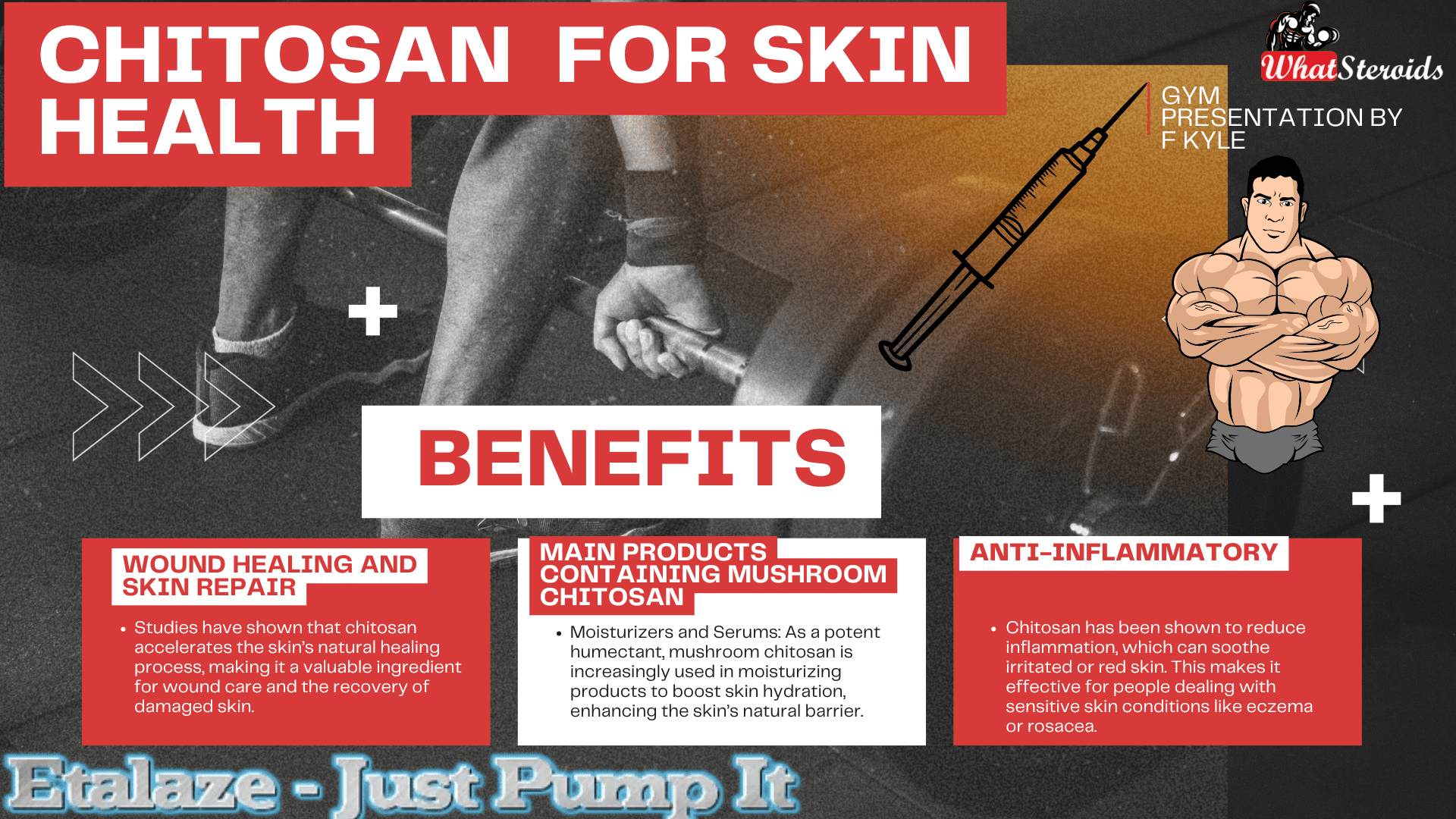Mushroom Chitosan for Skin Care: A Plant-Based Option for Skincare


Mushroom chitosan is a prominent ingredient in the skincare industry, celebrated for its compatibility with skin, moisturizing properties, and its role in wound healing and skin regeneration. Extracted from the cell walls of specific mushrooms, this eco-friendly, plant-based alternative to traditional chitosan (which is typically derived from shellfish) has recently gained considerable attention. It is swiftly becoming a favored ingredient in products designed to enhance skin texture, reduce inflammation, and improve moisture retention. This article delves into the science behind mushroom chitosan, its skin benefits, and how it compares to other popular ingredients.
Chitosan Overview
Chitosan is a natural polysaccharide traditionally obtained from the exoskeletons of shellfish like shrimp and crabs. However, mushroom chitosan, derived from fungi such as Aspergillus niger and Agaricus bisporus, offers a plant-based, vegan-friendly alternative. It provides similar benefits without the allergens or ethical concerns associated with animal-derived ingredients.
What It Does
Mushroom chitosan exhibits excellent biocompatibility, meaning it works well with human skin without causing irritation or allergic reactions. It is also biodegradable and sustainable, making it a particularly appealing option for eco-conscious consumers.
Mushroom chitosan forms a protective film on the skin’s surface, which helps retain moisture and shields the skin from environmental stressors like pollution and harmful bacteria. This barrier function also enhances the skin’s ability to retain water, making it especially beneficial for individuals with dry or sensitive skin.
Chitosan Magic
Additionally, chitosan has antimicrobial properties that can help prevent and treat skin infections. It promotes wound healing by accelerating the regeneration of skin cells, making it useful for post-inflammatory conditions like acne scars or minor cuts. Here is a summary of the main benefits of using mushroom chitosan:
Enhanced Hydration
Mushroom chitosan’s film-forming ability helps lock in moisture, maintaining the skin’s hydration levels. This is especially beneficial for dry, dehydrated skin or for maintaining a healthy moisture barrier.
Anti-inflammatory
Chitosan has been shown to reduce inflammation, which can soothe irritated or red skin. This makes it effective for people dealing with sensitive skin conditions like eczema or rosacea.
Chitosan Wound Healing and Skin Repair
Studies have shown that chitosan accelerates the skin’s natural healing process, making it a valuable ingredient for wound care and the recovery of damaged skin. It supports the regeneration of healthy skin cells, which can help minimize scarring and promote overall skin health.
Chitosan Antimicrobial Properties
Its ability to inhibit the growth of bacteria and fungi can help reduce breakouts and skin infections, providing a natural solution for acne-prone skin.
Anti-aging Benefits
Mushroom chitosan supports the skin’s elasticity and firmness by maintaining moisture levels and protecting it from oxidative stress, making it an effective anti-aging ingredient. By reducing the appearance of fine lines and improving texture, it contributes to a smoother, youthful complexion.
Related Article: Why A Newbie Must Use Electrolytes
Let's Compare it With Traditional Skin Products
Hyaluronic Acid: Mushroom chitosan and hyaluronic acid are both excellent for retaining moisture in the skin. However, chitosan also offers antimicrobial and wound-healing benefits, making it a multifunctional ingredient.
Collagen: Both ingredients aim to improve skin texture and elasticity. While collagen helps firm and plump the skin, mushroom chitosan focuses on moisture retention, repair, and protective qualities, offering a more comprehensive approach to skincare.
Traditional Chitosan: Mushroom chitosan has an edge over traditional shellfish-derived chitosan as it is plant-based and hypoallergenic. People with shellfish allergies can use it safely, and it’s also suitable for vegans and those seeking sustainable skincare options.
Main Products Containing Mushroom Chitosan
Moisturizers and Serums: As a potent humectant, mushroom chitosan is increasingly used in moisturizing products to boost skin hydration, enhancing the skin’s natural barrier.
Acne Treatments: Thanks to its antimicrobial and anti-inflammatory properties, mushroom chitosan is an excellent ingredient in acne-fighting formulas, reducing bacterial growth while calming inflamed skin.
Wound Healing Creams: Given its regenerative abilities, mushroom chitosan is often included in creams designed to speed up wound healing or reduce scarring, especially for acne-prone skin or post-skin procedures.
Anti-aging Products: Mushroom chitosan’s ability to retain moisture and support the skin’s elasticity makes it a key ingredient in anti-aging serums and creams, helping to reduce the appearance of fine lines and wrinkles.
Overall
Mushroom chitosan is an exciting, versatile ingredient in skincare that addresses multiple concerns, from hydration and inflammation to skin repair and protection. As a vegan-friendly, eco-conscious alternative to traditional chitosan, it offers a sustainable and effective solution for enhancing skin health. With its broad range of benefits and gentle nature, mushroom chitosan is poised to become a staple in modern skincare.
Recent Posts
Decoding IGF-1 LR3: A Guide to its Benefits
IGF-1 LR3 (Insulin-like Growth Factor-1 Long Arg3) is a synthetic variant of IGF-1, a hormone…
AOD-9604: The Fat-Burning Peptide Explained
AOD-9604, along with the similar HGH Frag 176-191, is a peptide derived from Growth Hormone…
Understanding Trenbolone-Induced Cough (“Tren Cough”)
Trenbolone, a potent anabolic steroid, can sometimes cause “tren cough”—a sudden and intense coughing episode…
Creatine vs Myostatin: An Expert’s Analysis
Myostatin, a protein encoded by the MSTN gene, acts as a regulator of muscle growth.…
Raloxifene (Evista) 101: A Non-Surgical Solution for Gyno
Raloxifene, a selective estrogen receptor modulator (SERM), is one of the most valuable yet less…
Mastering Bodybuilding in 2025: Top Fitness Tips for Success
Bodybuilding is more than just a sport; it's a lifestyle that requires dedication, discipline, and…



